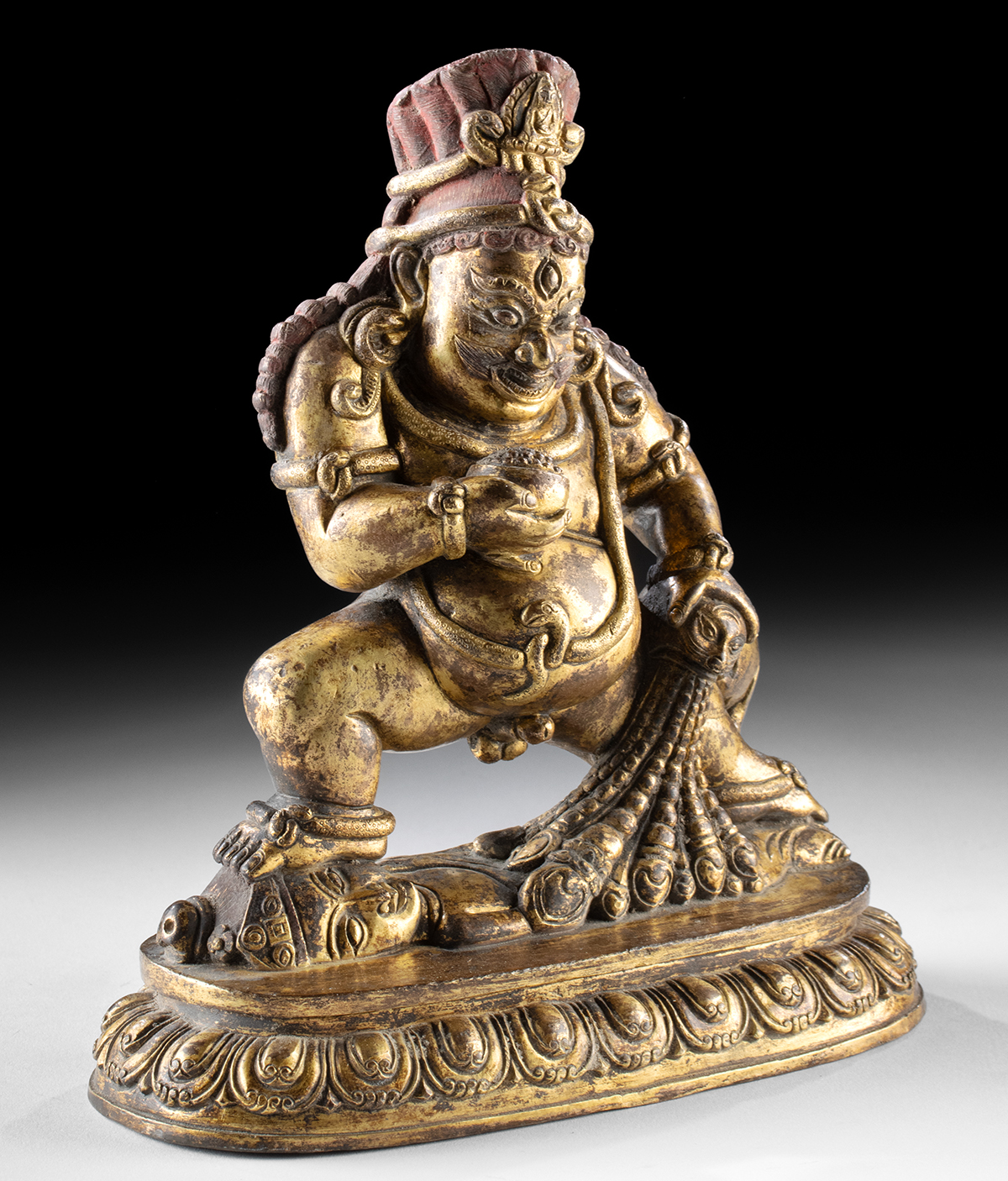Lot 151a, Auction 5/3/2024: Greek Archaic Terracotta Goddess Protome – Beautiful!
Sold
Western Greece, Archaic period, ca. 5th century BCE. A beautiful, mold-made terracotta protome depicting a goddess wearing a himation or headdress drawn up over her long hair that elegantly falls to her shoulders. Her ovoid visage displays large, almond-shaped eyes, a naturalistic nose, high cheekbones, and the signature Archaic smile. Although the exact significance of this smile is unknown, scholars suggest that the ancient Greeks associated it with good health and well being. The protome is a type of bust made by pressing a thin layer of terracotta into a single mold. These were first made in Rhodes, but from the early fifth century BCE onwards they spread throughout Greece. Note the trace remains of black and red pigment present on the surface, remains of the bright paints that previously adorned this example. Size: 1.8″ L x 3″ W x 4″ H (4.6 cm x 7.6 cm x 10.2 cm); 5.25″ H (13.3 cm) on included custom stand.
By the seventh century BCE, Greek art began to evolve from its embrace of geometric patterning, which was favored between approximately 1050 and 700 BCE, to more naturalistic representations of the human figure. Most famous are the freestanding sculptures of two main types, the male standing youth known as a kouros, and the draped standing female kore. The earliest examples demonstrate an Egyptian influence in both pose and proportions, but over time sculptors created even more lifelike representations. These were placed in sanctuaries as well as cemeteries and served as grave markers and dedications to the deities. Protomes like this example demonstrate these developing naturalistic leanings of Greek visual culture as well, with that Archaic smile signifying life and representing the Archaic ideal. They would have been dedicated in an ancient temple to the local deity, perhaps to thank the god or goddess, or to assist in making a request.
Condition: Professionally repaired with some areas of restoration; all done very well and difficult to notice. Nicks and small chips to surface as shown, but otherwise very nice presentation with trace remains of original pigment.
Provenance: private New York, New York, USA collection; ex-Mr. David F. Hoff collection, Virginia, USA, acquired in the 1990s
All items legal to buy/sell under U.S. Statute covering cultural patrimony Code 2600, CHAPTER 14, and are guaranteed to be as described or your money back.
A Certificate of Authenticity will accompany all purchases.
We ship worldwide and handle all shipping in-house for your convenience.























